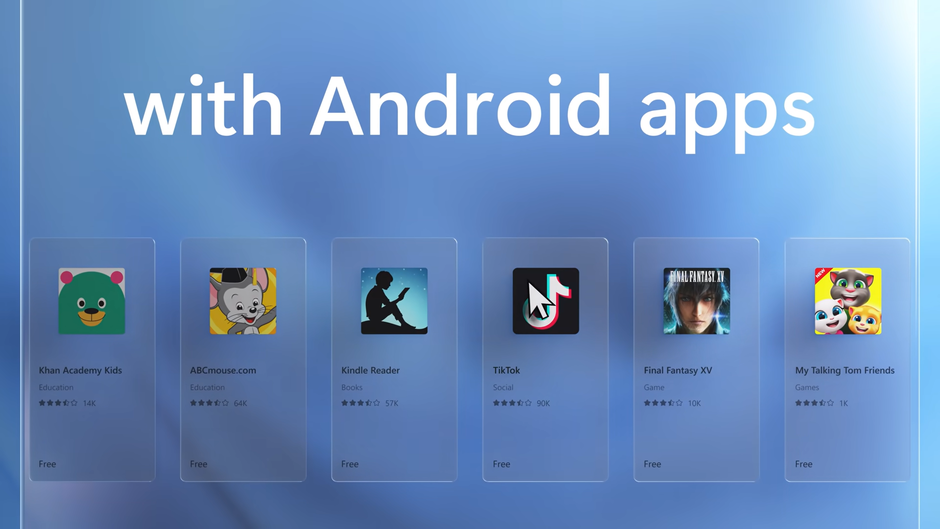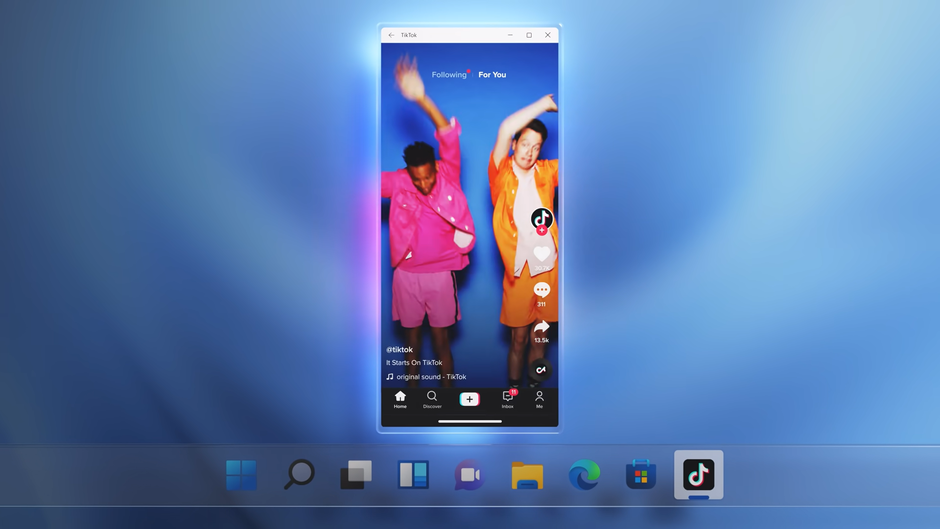On June 24th Windows 11 was made official and we found out that with it, Microsoft and Amazon have joined forces to bring Android apps to PC.
Does this mean you’ll be able to play your favorite Android games and use all of your mobile apps directly on your PC, no phone needed? Let’s try to clarify how downloading Android apps on Windows 11 will actually work…
The Amazon AppStore is behind it all
Instead of striking a deal with Google to bring the Google Play app store to Windows 11 (which Google is likely against), Microsoft is going with Amazon’s AppStore. This means that along with using your Microsoft account, you’ll most certainly need to also use an Amazon account to download Android apps on Windows 11.And of course, the Amazon AppStore isn’t as populated with apps like the Google Play store is, so you may not be able to easily download and run every single one of your favorite Android apps. However…
Sideloading apps on Windows 11 is possible
Indeed, however, you will be able to sideload Android apps that are not on the Amazon AppStore, which is always a welcome (albeit unsafe) option to have. This has been confirmed on Twitter by a Microsoft employee (via PCMag).
So if nothing suddenly changes before Windows 11 goes public, we can rest happy knowing that Microsoft isn’t going to restrict its users into only relying on the Amazon AppStore. Anyone who is informed enough about APKs (Android application packages) and can safely get a hold of the ones they need should be able to install them on their Windows 11 PC.
The Microsoft Store is the face of this operation
Sideloading aside, if you’re just a user who wants to do things as intended and safely, you’ll want to download your Android apps from the Amazon AppStore. Or more precisely, from the Microsoft Store. (Remember? Windows comes with its own built-in app store?)
Inside the Microsoft Store you’ll be able to search for Android apps like Twitter, TikTok, Disney+, and should the Amazon AppStore have those (which it does) – they’ll be pulled up from it and show up in the Microsoft Store, downloadable like any other Microsoft Store app.
Android apps will run in their own Android container and should be working fine with your PC’s mouse and keyboard (if said apps have keyboard support), in addition to being resize-able and snap-able just like any other Windows app. Best of all, if you’re using a Windows 11 tablet, or a Windows 11 laptop that has a touchscreen, you’ll be able to interact with Android apps pretty much naturally with just touch gestures.
When is Windows 11 coming out, is it free and can my PC run it?
In Microsoft’s own words:
The upgrade rollout plan is still being finalized, but for most devices already in use today, we expect it to be ready sometime in early 2022.
So we can expect that Windows 10 users will be able to upgrade to Windows 11 in late 2021 at best, or more likely – early 2022.
Upgrading from Windows 10 to Windows 11 will be free, but there’s a caveat – your PC will need to meet certain new minimum requirements that didn’t apply for Windows 10. Most notably, your PC will need to have a Trusted Platform Module (TPM), which is technology used for access control and authentication.
Until recently, Windows users could download the PC Health Check app and use it to test if their rig is Windows 11-ready, but the app was taken down reportedly due to inaccuracy issues. The app is expected to be made downloadable again soon on Microsoft’s Windows 11 page, under “Check for compatibility” and remains the easiest way to see if your PC will be able to run Windows 11.



